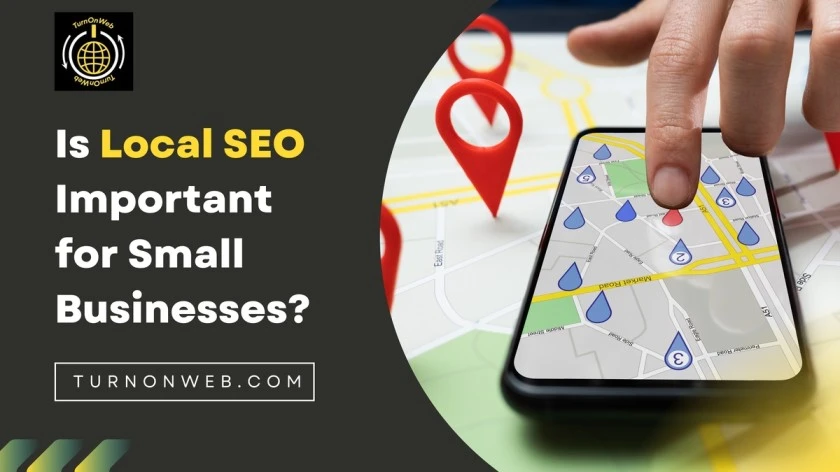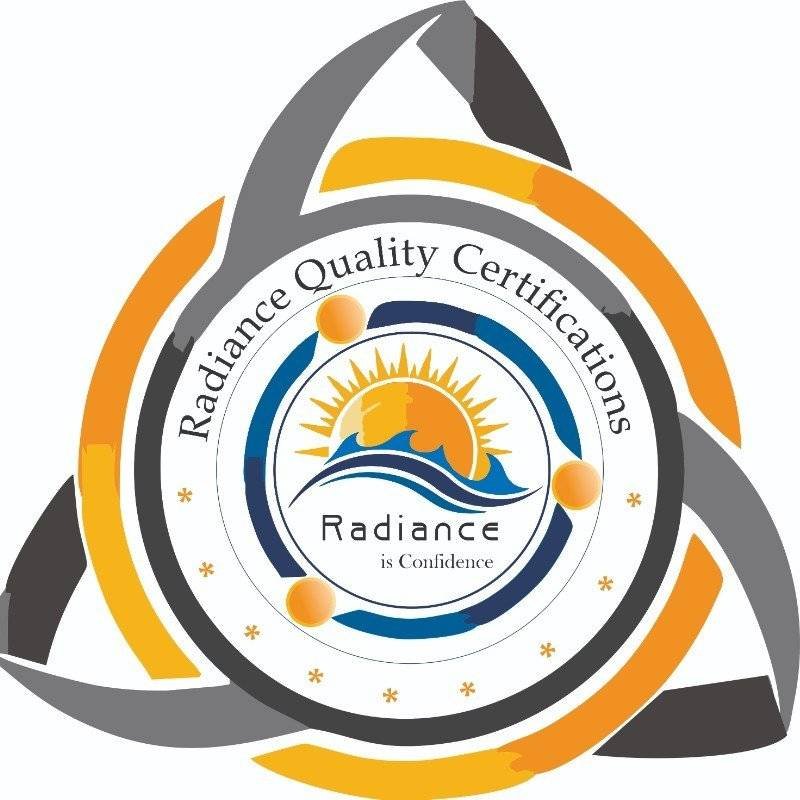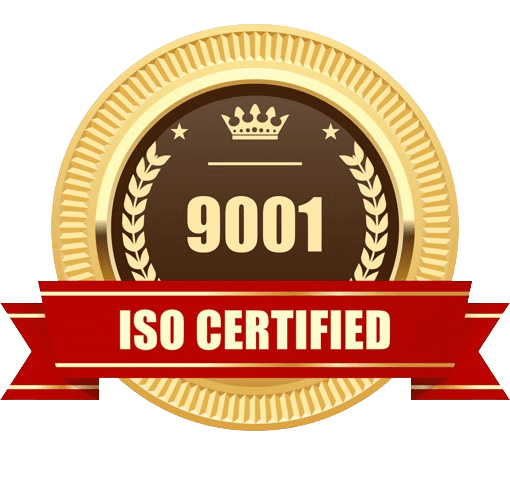Why is Local SEO important for small businesses?

For small businesses looking to increase their online presence and attract more customers, the importance of local SEO cannot be understated. With competition becoming fiercer in the digital marketplace, it’s essential for small businesses to optimize their online presence to ensure they stand out to local customers. But just how important is local SEO for small businesses?
In today’s world, consumers are increasingly turning to the internet to find local businesses and services. This trend has only been accelerated by the COVID-19 pandemic, which has forced many businesses to rely on their online presence to reach customers. As a result, having a strong local SEO strategy has become crucial for small businesses looking to thrive in a crowded marketplace.
Local SEO is not just important for small businesses – it’s essential. By optimizing their online presence for local searches, small businesses can improve their visibility in local search results, attract more customers in their area, and ultimately grow their business. In this article, we will explore the many benefits of local SEO for small businesses and provide tips on how to effectively implement a local SEO strategy.
What is local SEO and why is it crucial for small businesses?
As the name suggests, local SEO refers to optimizing a business’ online presence to drive more business from relevant local searches. As a way of competing with larger businesses in an area, local SEO is crucial for small businesses targeting a specific geographic area. By optimizing their website and online listings for local search terms, small businesses can increase their visibility in local search results, attract more local customers, and increase foot traffic to their physical locations.
To thrive and grow in today’s digital age, where consumers rely heavily on the internet to find local businesses, small businesses must have a strong local SEO strategy.
How local SEO works
In essence, local SEO involves optimizing a company’s online presence to appear prominently in local search results. The goal of local SEO is to increase visibility for searches that are geographically limited, aiming to attract local customers.
As part of this process, a variety of strategies are utilized, including optimizing the business’s Google My Business listing, ensuring consistency of local business information across various directories, obtaining local backlinks, and incorporating local keywords into the business’s website. Additionally, local SEO practices involve managing online reviews and ratings, as these elements significantly influence local search rankings.
By making a business easily discoverable by individuals searching for relevant products or services within a particular area, you can increase local traffic and brand awareness.
How to do local SEO Marketing
Local SEO (Search Engine Optimization) works by optimizing your website and online presence to increase visibility in local search results. This involves various steps which are listed below:-
1. Keywords
The first step in optimizing your website for local SEO is to identify relevant keywords that potential customers may use when searching for businesses like yours in their area. This could include terms like “best coffee shop near me” or “top-rated plumber in [city]”.
2. Google My Business
Creating and optimizing your Google My Business profile is essential for local SEO. This is where you can provide important information about your business, such as your address, phone number, hours of operation, and customer reviews. Google uses this information to determine your business’s relevance to local searches.
3. Local Citations
Local citations are mentions of your business name, address, and phone number on other websites, such as online directories and review sites. Having consistent citations across the web can help improve your local SEO rankings.
4. Online Reviews
Customer reviews play a significant role in local SEO, as they can influence your business’s reputation and visibility in search results. Encouraging satisfied customers to leave positive reviews can help boost your rankings and attract new customers.
5. On-Page Optimization
Optimizing your website’s content and metadata with local keywords can help improve your visibility in local searches. This includes optimizing title tags, meta descriptions, and headings with relevant keywords and location information.
6. Local Link Building
Building relationships with other local businesses and organizations can help you acquire backlinks to your website, which can boost your local SEO rankings. This could include partnering with local charities, sponsoring events, or networking with other businesses in your area.
7. Mobile Optimization
With more people using mobile devices to search for local businesses, it’s essential to ensure that your website is optimized for mobile users. This includes having a mobile-friendly design, fast loading times, and easy navigation to improve the user experience and increase your chances of ranking higher in local searches.
Businesses can improve their chances of appearing in local search results when potential customers are looking for products or services in their area by implementing these strategies. Furthermore, local SEO helps businesses target specific geographic areas and reach customers who are more likely to visit their physical locations.
Benefits of local SEO for small businesses
- Increased visibility: Local SEO helps small businesses increase their visibility online, making it easier for potential customers in the local area to find them when searching for products or services.
- Targeted traffic: By optimizing for local search terms, small businesses can attract highly targeted traffic from people who are actively looking for what they offer in their specific geographic area.
- Competitive edge: Local SEO can help small businesses stay ahead of their competitors by ensuring that their business appears in local search results, giving them an edge in attracting local customers.
- Better online reputation: Local SEO can help small businesses build a strong online reputation by encouraging positive customer reviews and ratings, which can help attract more customers.
- Cost-effective marketing: Local SEO is a cost-effective marketing strategy for small businesses, as it targets a specific audience in a specific geographic area, reducing the need for expensive national or global advertising campaigns.
- Increased foot traffic: Local SEO can drive more foot traffic to small businesses by making it easier for local customers to find them online and visit their physical location.
- Improved website traffic and conversions: By optimizing for local search terms, small businesses can drive more traffic to their website and convert more of that traffic into leads and sales, ultimately increasing their revenue.
Local SEO best practices
Claim and optimize your Google My Business listing
One of the most important steps in local SEO is claiming and optimizing your Google My Business listing. This will help your business show up in local search results and Google Maps, making it easier for potential customers to find you.
Use location-based keywords
Make sure to incorporate location-based keywords in your website content, meta descriptions, and page titles to help search engines understand where your business is located and what areas you serve.
Create local content
Creating local content that is relevant to your target audience can help improve your local SEO. This can include blog posts, news articles, and videos that are specific to your location.
Get online reviews
Online reviews are a key factor in local SEO rankings. Encourage your satisfied customers to leave positive reviews on platforms like Google, Yelp, and Facebook to boost your credibility and visibility in local search results.
Build local citations
Local citations are online mentions of your business name, address, and phone number on other websites. Make sure your business information is consistent across all online directories and listings to improve your local SEO.
Optimize your website for mobile
With more and more people using mobile devices to search for local businesses, it’s crucial to ensure your website is mobile-friendly. This will not only improve the user experience but also help with your local SEO rankings.
Engage with your local community
Engaging with your local community through events, sponsorships, and partnerships can help improve your local SEO. It shows search engines that you are an active member of the community and can boost your local credibility.
By following these local SEO best practices, you can improve your visibility in local search results and attract more customers to your business.
Pros/cons of DIY local SEO
The decision to manage local SEO efforts in-house or to hire an agency is a critical one for small businesses. Each approach has its own set of pros and cons.
Pros:
– DIY local SEO can save you money compared to hiring a professional agency
– You have more control over the strategies and implementation of your SEO efforts
– Learning and implementing SEO yourself can provide you with valuable knowledge and skills for your business
Cons:
– DIY local SEO can be time-consuming and require a significant learning curve
– Without expertise, you may not be able to optimize your website effectively for search engines
– Professional SEO agencies have access to tools and resources that may not be available to you.
TurnOnWeb, a premium website development company, specializes in enhancing your Local SEO. For more information, please visit our Contact page.
Conclusion
Small businesses must invest in local SEO if they want to succeed in their local communities. Local SEO drives qualified traffic to your website stands out from national competitors and fosters loyal, local customers.
When developing your local SEO strategy, keep in mind the unique needs and search behaviors of your local customers. Measure the effectiveness of your efforts by analyzing data, and be willing to adjust and evolve as your business grows. Your commitment to localizing your online presence is an integral part of the future success of your business, whether you decide to tackle it on your own or with the assistance of an agency.
While the digital landscape may seem vast and global, the heartbeat of local business is the relationship with your neighbors. Local SEO is the digital handshake connecting you with your neighbors and keeping your community thriving. TurOnWeb can help you take your local SEO strategy to the next level with a local SEO audit of your business website. Contact us today to learn more about how we can help.
People Also Ask
1. How often should I update my local SEO strategy?
Updating your local SEO strategy should be a continuous process, but at a minimum, review and adjust your strategy quarterly. This ensures that you’re keeping up with search engine algorithm changes, adapting to new local SEO trends, and refining tactics based on your ongoing analysis and results.
2. Do I need a physical location to rank in local search?
Yes, having a physical location is crucial for ranking in local search results, as it legitimizes your business in the eyes of search engines and helps you appear in location-specific searches. However, service-area businesses without a storefront can also optimize for local SEO by specifying service areas in their Google My Business listing.
3. How important are customer reviews to local SEO?
Customer reviews are extremely important to local SEO. They not only enhance your business’s visibility in search results but also help build trust and credibility with potential customers. Encouraging satisfied customers to leave positive reviews and promptly addressing negative feedback can significantly impact your local search rankings.
4. Can social media impact my local SEO efforts?
While social media profiles might not directly impact search rankings, they influence local SEO through increased online visibility and brand awareness. Engaging with your community on social media platforms can drive traffic to your website and encourage more local searches for your business, indirectly benefiting your local SEO.
5. What is the most effective way to use keywords in local SEO?
For local SEO, it’s crucial to incorporate location-specific keywords naturally within your website’s content, meta descriptions, and titles. Focus on keywords that include your city or region alongside your business or service offerings to target local customers effectively. This strategic keyword placement can improve your visibility in local search queries related to your business.
- QUICK LINKS
TurnOnWeb Solutions - Zoho's Partner
- QUICK LINKES
- SERVICES




